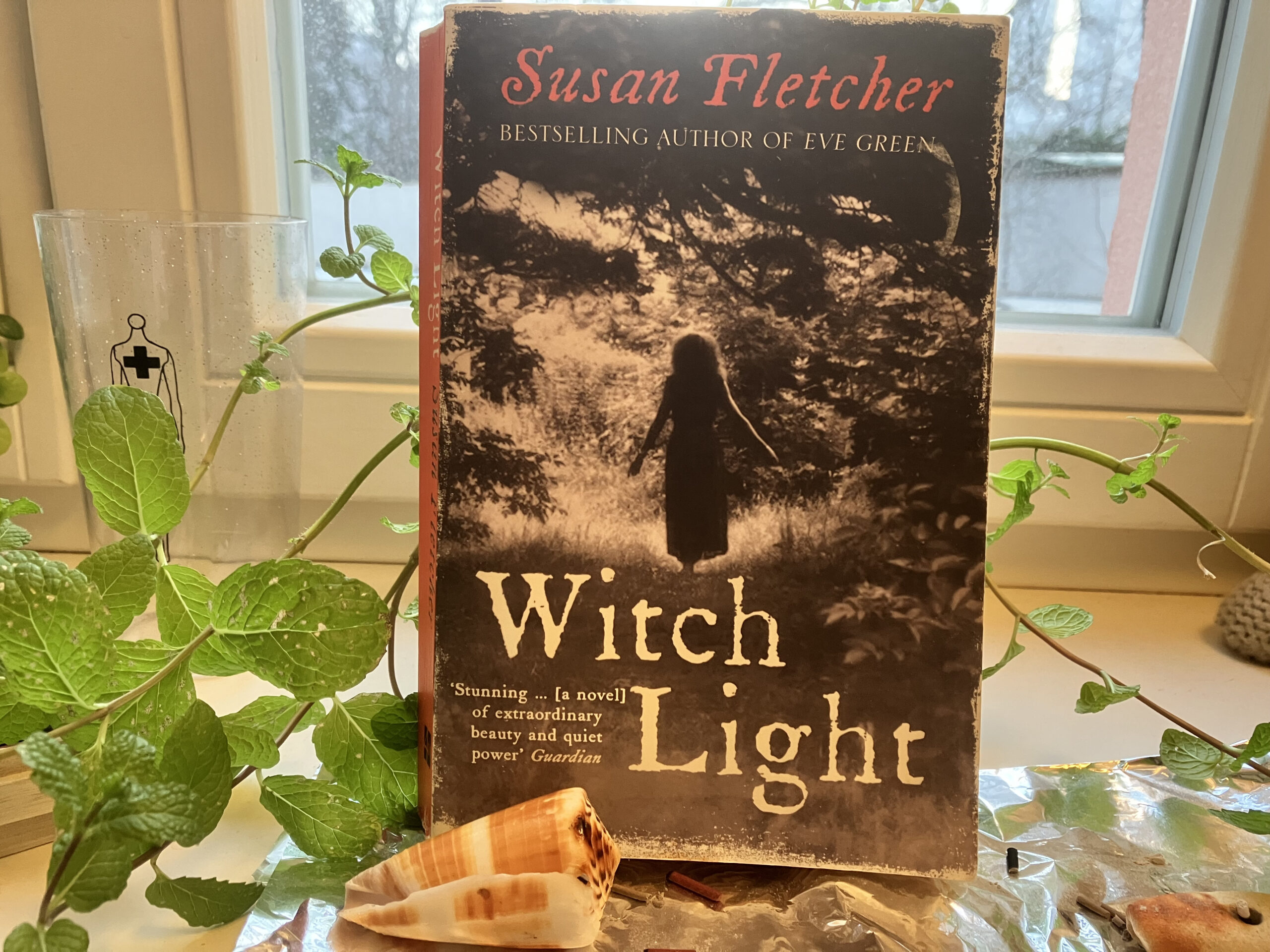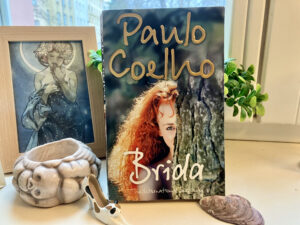There is no Devil, only man’s devilish ways.
All bad things, she hissed, are man made…
Corrag lives in 17th-century Britain, where witch guarantees a death sentence. And witch is the title that follows her all the way from her rocky beginnings in Thorneyburnbank England to the wild mountains of the Scottish Highlands. It is the title that took her mother’s life, and her grandmother’s before that, and she will need to live a life of feral wandering and hiding if she wants to avoid the same curse.
Witch Light is told from two narrative perspectives. That of the priest who finds her, small, dirty, and chained, in the dreary cell of a Scottish gaol. He goes there searching for answers about the terrible Glencoe massacre, which it is rumoured Corrag has witnessed. The second narrative is Corrag’s own, who knows the priest is her last hope. They plan to burn her at the stake, only the icy cold winter weather is holding them back. But as soon as the snow has melted, she is a goner.
The unlikely meeting takes us through the poetic, enchanting yet grueling and enraging life story of Corrag, which she recounts to the priest night after night whilst he transcribes it. It takes us through all three of her lives. The one with her mother and their cats in their cosy English cottage. The one where she wanders the nights towards North and West on the back of her beloved mare. And the one where she finally finds the place she was always meant to be. The one where witch is no longer a threat, and she can roam free, along with the rugged MacDonald clan, who suffer their own form of societal witch-hunt.
But how long can this last? If the link between all three lives is people’s cruelty, is she safe anywhere?
Some historical context:
Witch Light is a fictionalised story based on true events. On February 13th, 1962, the terrible Glencoe Massacre took place in the Scottish Highlands. Due to political and religious unrest after the Glorious Revolution, the island was divided between its allegiances to two different kings – one of whom was kicked off the throne. Unfortunately for the MacDonalds, this was the one they followed, which condemned them to societal ostracization.
After delaying pledging their allegiance to the “correct” king, government troops led by Captain Robert Campbell, massacred the MacDonalds after spending days with them enjoying their hospitality and claiming to come peacefully, while they were waiting for backup.
Around 38 clan members were killed, leaving a lasting scar on Scottish history.
The witch-hunts of 17th century Britain targeted mostly women, though there were exceptions, who were accused of witchcraft. Because of religious and public fears, thousands of innocent people were falsely convicted and executed during this period of heightened superstition and societal unrest.
The book’s characters truly existed, including Corrag, though there is very little information on her available to us. We know she would have been present for the massacre, and that the priest Charles Leslie truly interviewed victims and culprits of the event.
Find out more:
https://www.nts.org.uk/visit/places/glencoe/the-glencoe-massacre
How the book found me:
The book found my mum first. She was volunteering in the local museum of a tiny village in the Scottish Highlands, where I spent my teenage years. A woman came in and turned out to be no other than a direct descendant of the MacDonald clan of Glencoe. She recommended this book to my mum, who loves words as much as I do, so she of course got herself a copy.
I would always see Witch Light on my parent’s bookshelf when I visited, and I would always pick it out, drawn by the title. But then I would always place it back. I was afraid of it. Anyone who has been to the Highlands knows there can be an unexplained eeriness about the place, and there was something of that in the book’s essence. I was afraid that its contents would scar me, that they would be too morbid, too grim. Oh how wrong I was.
Fast forward a few years (I know! It took far too long.) I now lived in a different country, I had finished my studies, and amongst all my anxieties about the future, had fallen into a deep obsession with the witch trials of the 17th century. When I told my mum about it over the phone, and about my doubts about enjoying city life and missing nature, she smiled and said she had just the book for me.
A month later, she flew over (not just to give me the book. In fact, that was probably the last thing on her mind. But for poetic sake, we can imagine it was). And I started reading it immediately.
What did I think?
Some of my initial fears were not completely unjustified. About it being grim and gruesome. Certain parts of it are, but they are not the takeaway feelings. They only make the beautiful moments stronger.
Witch Light is written very poetically. At moments I forgot I was reading prose, and felt like I was being transported in a sublime lyrical trance. This perfectly encapsulates the voice of Corrag, an ethereal person who, though she cannot write, has such a way with words that even the priest thinks she is hypnotising him with spells in their first couple of meetings. Because of course, if a woman is good at something, she must be a witch, right?
This style of writing, along with the fact that we are constantly jumping between short chapters from two different voices in a fast-paced exciting narrative, makes for a page-turning read. This doesn’t mean it’s all easy. Some parts hurt to get through because I just couldn’t accept that humans are capable of such stupid and cruel thinking.
And this is all thanks to how well-crafted Fletcher’s characters are. They all felt so real, it was as though I knew them personally. And I felt a lot for some of them. Corrag, her mum, her mare, her MacDonald clan, and the one whose kiss is the last thing to comfort her in her dark cell. Others, not so much. The neighbour who Corrag stole the mare from? The English soldiers who kill and rape? The villagers who cheer at the underdogs hanging for superstitions? I wish I could say they were a thing of the past.
The topics of this book are all so relevant today, even though it is historical fiction. Corrag often mentions that she has no king, which always shocks others, who kill and die for their kings. But that is exactly her point. Where kings go, death goes too. And for what? Money? Power? Who even gets to reap the benefits of those? Certainly not the ones who die for it. The topic of witch hunts, and the misunderstanding of anyone slightly different from the norm, has also not faded one bit. Although in most places it is no longer socially accepted to perform public hangings and burnings, witch-hunts have not disappeared one bit. Just like Corrag’s mother said, people just need someone to blame. And it makes it dangerous to be on the receiving end.
Fletcher’s descriptions of nature and its creatures just did something to my soul. It gave me back that connection to wildlife that I felt I had been missing. I could smell the forest, feel the mare’s warm coat against mine, and feel the fierce unforgiving wind of the Highlands on my face. (I’ve felt that one more than once and I won’t say I love it as much as Corrag does). And this connected me to Corrag more than anything, her love and adoration of the world, and her strong desire to live and experience everything. She too was horrified by man’s grimness, which was the only grimness of the tale, in the end, and one I didn’t need Witch Light to be subjected to.
I enjoyed the contrast between the priest’s short letters to his wife, where he tells her about his mission and Corrag’s longer flow of prose. At first, I thought the wife didn’t exist, and he was just a crazy man writing to a woman who couldn’t be happier he was out of the country (it didn’t help that he was disgusted by Corrag and labeled her a deviant despite her story being so innocent). But then she replies, and though we never hear the wife’s voice, I feel an affinity for her. She softens the priest’s harsh disposition towards the ‘witch’, and creates in him the change of heart that enables the unlikely friendship to blossom.
If there was one thing that threw me off a bit, it was the ending. And not the ending itself, but the way it was written. Since Corrag cannot write, I assumed the whole time that Corrag’s voice was written by the priest, who was taking notes during their encounter. But the very last chapter is again from Corrag’s perspective when their paths have split. I am still not sure how to interpret this. And maybe that’s the point. I should just let Corrag’s (Fletcher’s) magical words transport me, and not worry so much about the details of how they got to me. Perhaps she was casting a spell the whole time.
Should you read Witch Light?
Yes! You should run now to your nearest bookstore (or computer) and get yourself a copy! Not only is it a beautifully written tale that will give you goosebumps and simultaneously destroy and restore your faith in humanity, but I think everyone can learn something about compassion and understanding from Corrag. There always have been and always will be witch hunts, whether on ‘witches’ or on other marginalised people. It’s too easy to see them as meaningless numbers. And I am not saying I’m a saint. I too have read horrific articles and moved on completely unaffected. But books like Witch Light bring these numbers to life, and they stick around. So next time we land on that story of unjust persecution, we will remember little Corrag, and we will remember that each of those people existed just as much. And that numbers are for maths classes, and who likes those anyway?



